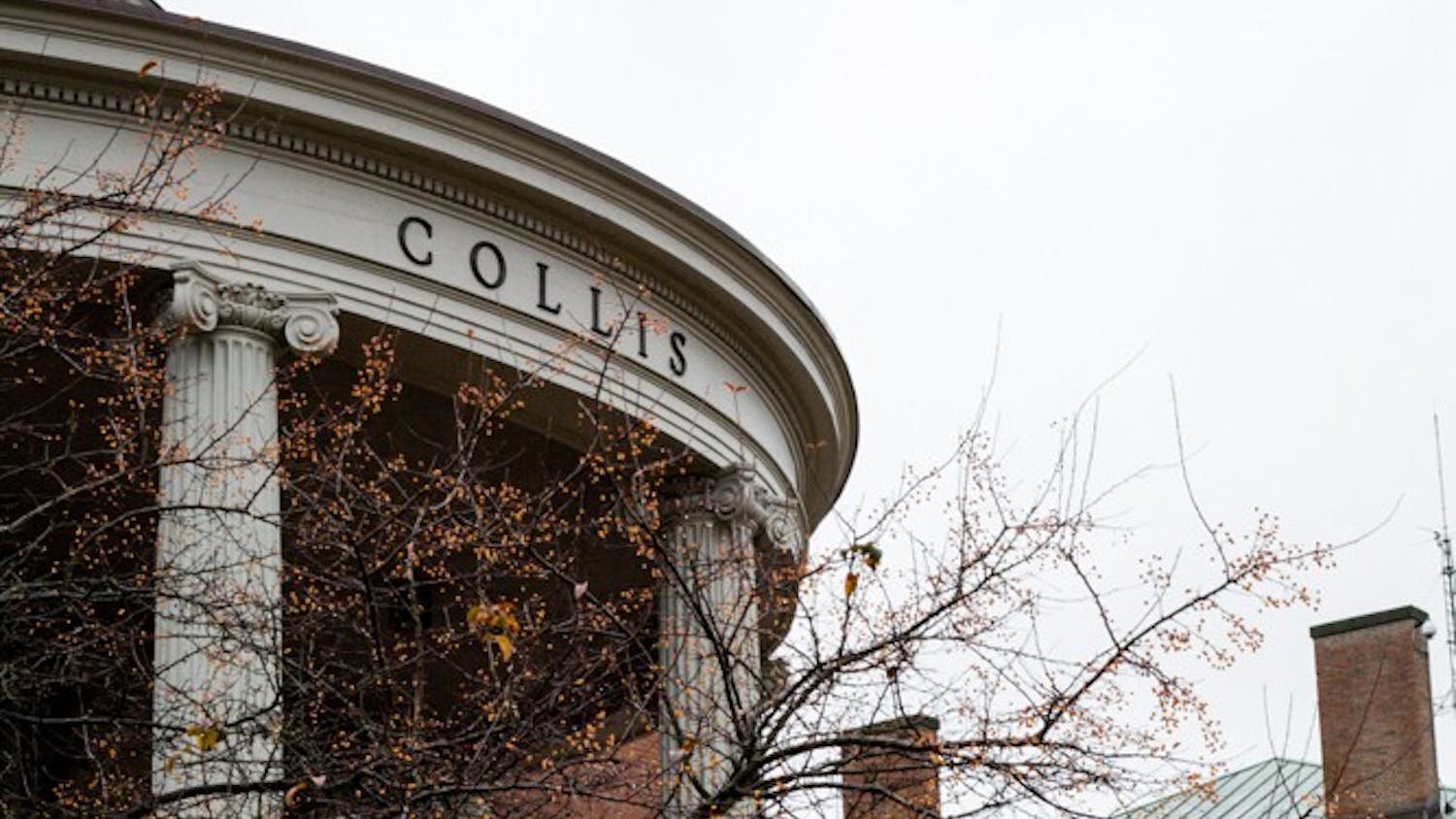Christianne Wohlforth, acting director of the Dickey Center for International Understanding, introduced Mali and said few individuals are more aptly suited to explore the role of words.
Reciting his poem, "Totally Like Whatever," Mali argued that today's youth belong to one of the most inarticulate generations of all time.
"What has happened to our conviction?" Mali said. "It is not simply enough to question authority. You have to speak with it too."
Mali incorporated autobiographical details into his routine, charting his journey from teacher to slam poet.
He recounted a defining moment with one of his students who had lost her pen and did not realize that Mali had already offered her a replacement.
"All I do is give you what you need before you know you needed it," Mali said. "I'm a teacher, and that's what we do."
Emphasizing the potentially positive effects of words, Mali highlighted the motivating power of teaching and encouraged students to consider pursuing a career in education.
He founded the New Teacher Project, asking individuals inspired by his work to sign a pledge promising to become teachers. Mali said he hopes to acquire 1,000 signatures by the end of this year. The 900th person signed the online pledge after Mali performed in Iowa two nights ago, he said.
"Teachers make a goddamn difference!" Mali said, performing his iconic poem, "What Teachers Make." "Now what about you?"
As a teacher and poet, Mali underscored the importance of expression and carefully choosing one's words.
"My job is to remind people that language, when wielded well, can do wonders," Mali said in an interview with The Dartmouth.
Before the show, Mali led a workshop with a small group of students and professors in One Wheelock, where he stressed that speaking loudly, slowly, clearly and with passion are key to presenting aloud.
"When you are speaking extemporaneously, you speak from the heart," he said. "Something interesting will happen if you stop saying um,' ah' or er.' Your regular conversation suddenly goes up a level."
Mali put this suggestion into practice by snapping his fingers at attendees whose names he memorized at the beginning of the workshop each time they used a filler word.
"It's like being an alcoholic," he said. "You need to recognize you have a problem first."
Mali played "Drunk Boyfriend at the Poetry Reading," performed by poets Cristin O'Keefe Aptowicz and Shappy Seasholtz, for the group.
The poem referenced a poet who compared parts of her body to abstract and concrete objects. Group members then wrote poetry with similar comparisons, likening ears to great caverns and chests to the cool side of a pillow.
"There's not anyone who wrote something, and I was like, abandon that,'" he said. "Be as ridiculous as you want to. You can be obnoxious if you want. I often am."
His encouraging critiques stood out to writing professor Jonna Mackin, who attended the workshop.
"Here I am in a room full of students, and I usually get a little embarrassed when asked to participate, but he made it so manageable and tangible," she said.
Later in the workshop, Mali asked group members to write a poem about specific objects.
"I like things that are broken, things that are scratched," he said. "Mention things that make the audience go, I can see that, it reminds me of something else.'"
Throughout the workshop, Mali, who taught high school and middle school students for nine years, stressed the importance of good teaching.
"When I left the regular classroom I'm still teaching, that's what I'm doing right now I used to have people come up to me and say, The way you talk about teaching has made me decide I want to be a teacher,'" he said.
The Dartmouth Centers Forum, which sponsored the workshop and performance, is a collaboration of 13 College centers and organizations, according to Amy Newcomb, student programs officer at the Dickey Center.
"So much of his work is related to how one speaks, how one writes," she said. "The idea was to make him accessible beyond the performance. I was struck today by that push to write on the spot, to dig deeper and to immediately follow up on some of the things he mentioned."




